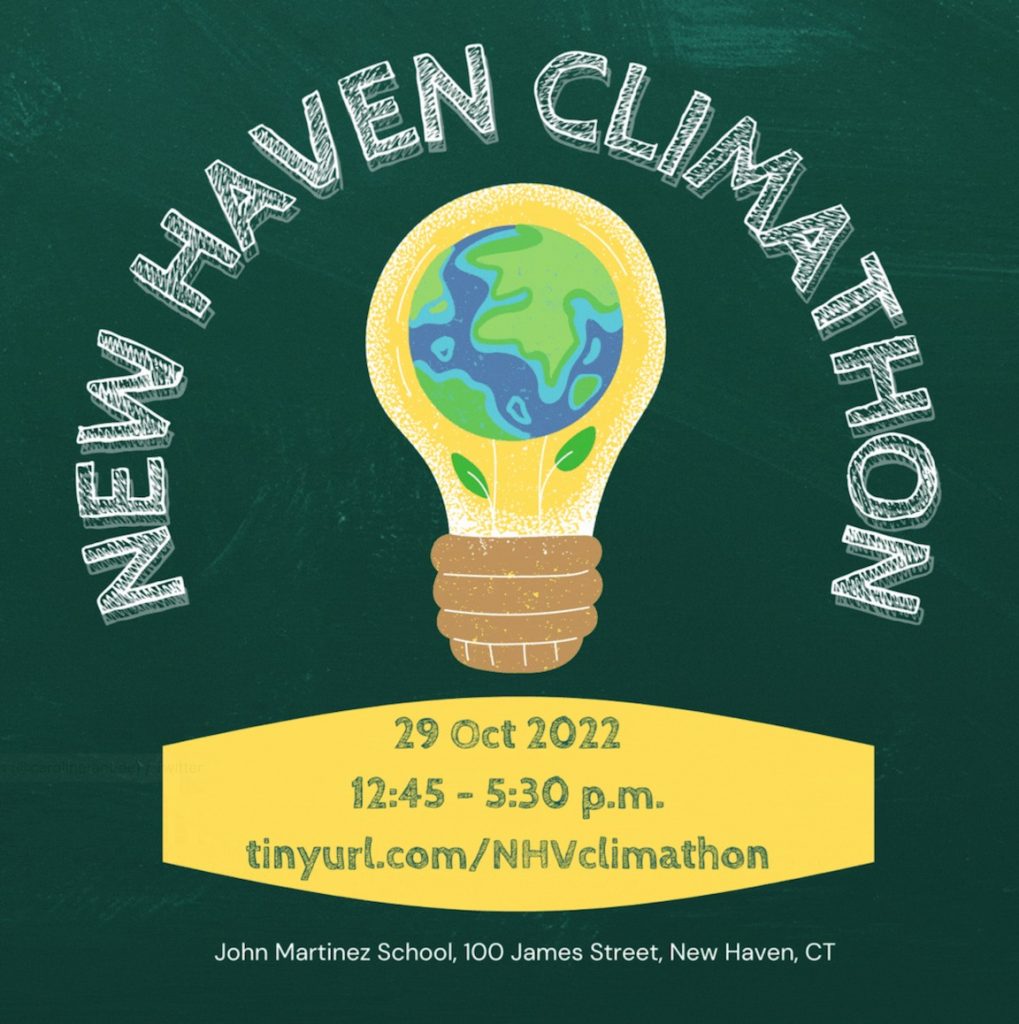
On October 29, Save the Sound joined this grassroots initiative hosted by, Reimagining New Haven in the Era of Climate Change and The Narrative Project, with countless local partners including Artspace, City of New Haven, City Seed, CIRCA, NOAA, and Junta for Progressive Action. Over 140 participants gathered at the John Martinez Elementary School for “New Haven Climathon”, for a half-day event focused on raising awareness about the local impacts of climate change and catalyzing action.
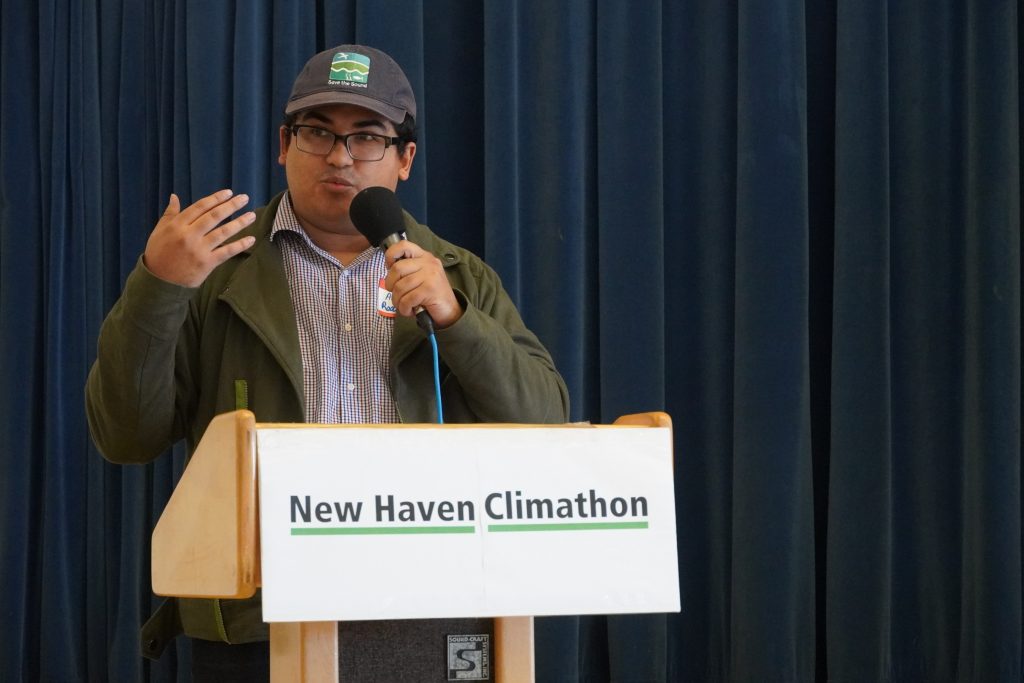
The afternoon began with a series of compelling presentations on climate justice, the role of the arts in addressing climate change, sea level rise and coastal flooding, climate literacy education, rising temperatures, droughts and water shortages, food scarcity and rising food prices, buildings and energy, and climate migration. The lineup of both the speakers and workshop facilitators consisted of local leaders, researchers, educators, state agencies, and more, including Save the Sound’s own Environmental Justice Specialist Alex Rodriguez, and Ecological Communications Specialist Melissa Pappas.
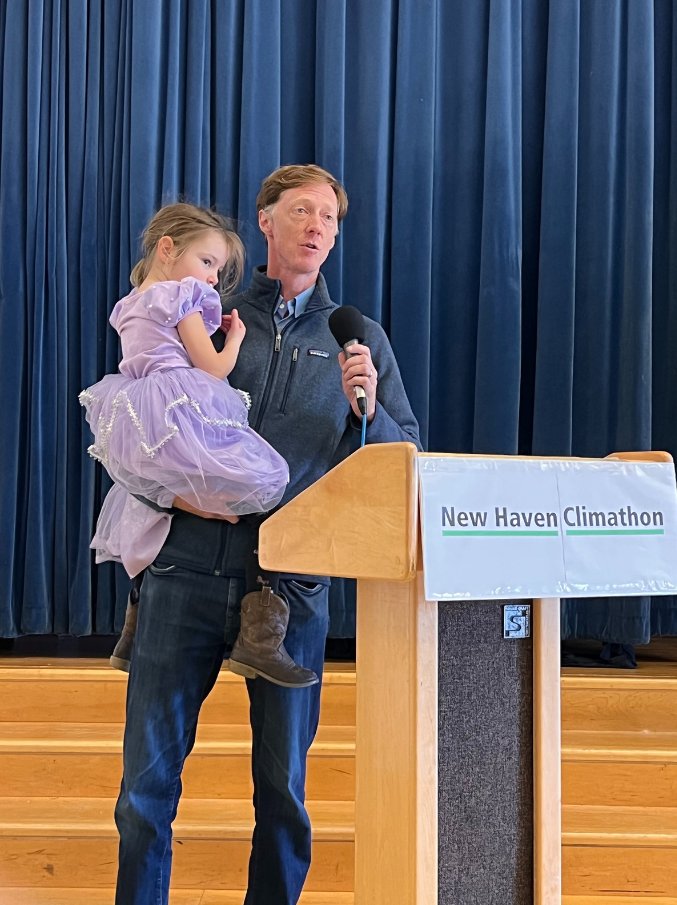
“It’s inspiring to see so many leaders in the New Haven community come together to learn and collaborate to confront climate change, the existential challenge of our time,” said New Haven Mayor Justin Elicker in his opening remarks. The City has allocated $5 million toward climate and resiliency initiatives and several hundred million in grants towards these efforts as well.”
While funds are available to solve these issues, it is important to consider where it will be the most effective. The presentations provided tangible solutions that the New Haven community could get involved in as well as help shape. Some of the presenters’ main points are summarized in the following quotes.
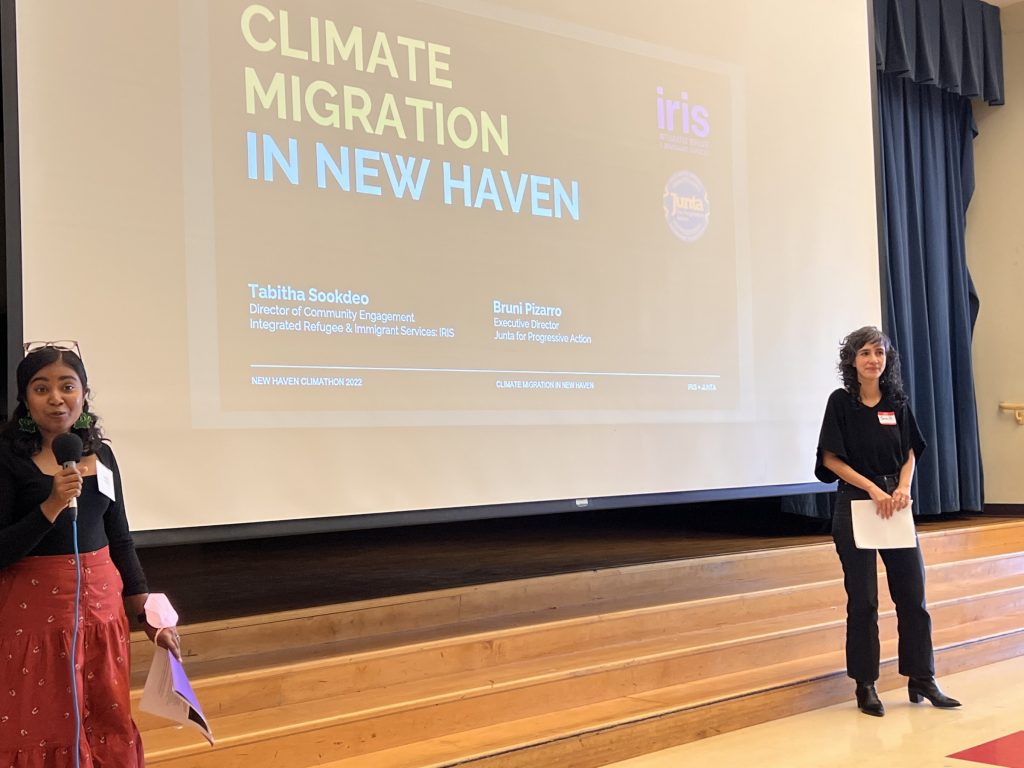
Kwadwo Adae, a New Haven artist and educator, reminded everyone of the role that the arts play in addressing climate change. “Everyone has the ability to make a difference,” he said. “It doesn’t matter how small, every action matters. Let’s fight climate change by expanding clean public transportation and planting trees. Let’s reduce our plastic consumption by using refillable water bottles. We can all make a difference. Bruni Pizarro, executive director of Junta for Progressive Action and Save the Sound Board Member, and Tabitha Sookdeo, director of community engagement at Integrated Refugee & Immigrant Services spoke on climate migration. “Migration is climate adaptation,” they said. “Support social services as critical response to climate migration, and join us in advocating for long-term legal protections for newcomers, immigrants, and BIPOC (Black, Indigenous, and People of Color) communities.”
Courtney Renton, executive director of CitySeed, addressed food scarcity and rising food prices.“As climate change hits farms, food scarcity becomes more common and the price of food increases,” she said. “One solution Connecticut already has at its fingertips is SNAP (Supplemental Nutritional Assistance Program) and other nutrition programs, which can be redeemed – and often doubled at farmer’s markets.” Renton added, “Many think of SNAP as an economic and poverty-related service, but it should be looked at as an environmental justice program because it means massive amounts of state and federal dollars can be funneled to local farms using sustainable land stewardship practices.”
Doreen Abubakar, founder of CPEN – Community Placemaking Engagement Network, spoke on climate literacy education. “Academics, the wealthy, nongovernmental organizers, and governments can not solve the climate crisis on their own,” she said. “Climate literacy education is important; there needs to be more forums provided to engage people who are unfamiliar with the topic of climate change with this education so we can consider the concerns they raise.”
Addressing buildings and energy, Melissa Kops, advisory council members of the Connecticut Green Building Council, said, “Building electrification is critical to meeting our state’s climate goals, and it also addresses environmental justice through reduced carbon pollution and health disparities. On top of this, energy transparency is important because residents have the right to know the carbon footprint of the homes they may buy or rent.”
After the presentations, a break provided a moment to digest the information and refreshments. Participants then had the opportunity to delve into each topic further through interactive workshops.
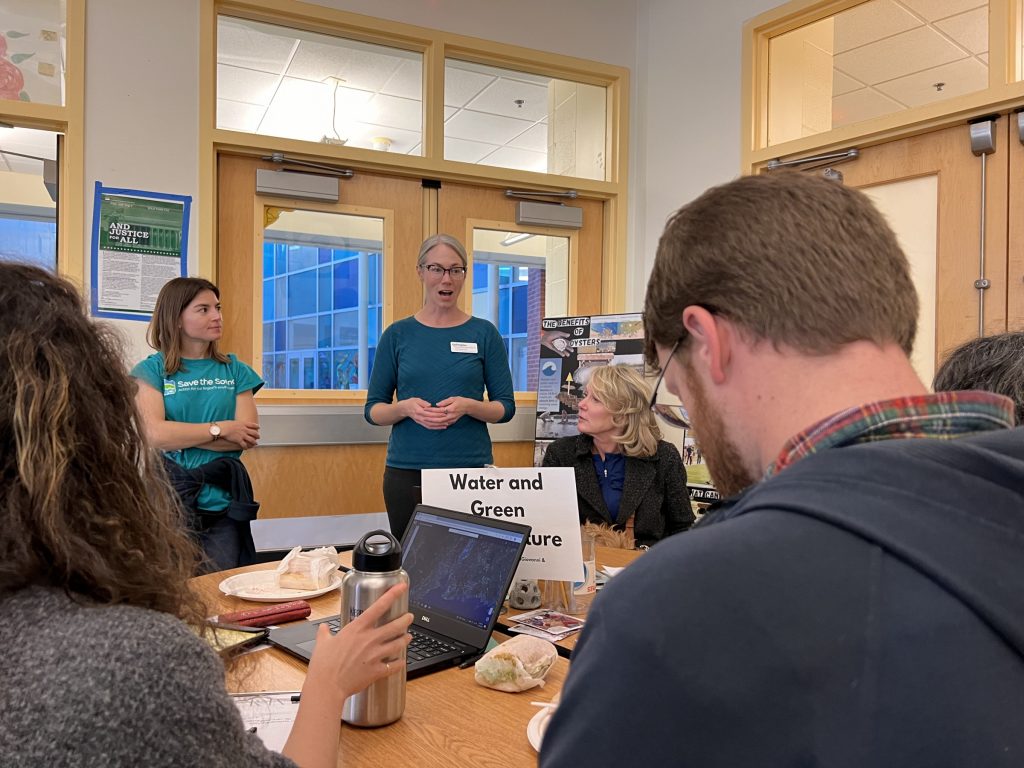
Melissa Pappas and Kimberly DiGiovanni, Associate Teaching Professor of Civil Engineering at Quinnipiac University, facilitated a workshop on water and green infrastructure that incorporated a visualization of New Haven’s rising sea level with NOAA’s Sea Level Viewer, a presentation on Save the Sound’s living shoreline projects, and the benefits of oyster reefs.
“It’s hard trying to come up with satisfying solutions to climate change consequences,” said Melissa Pappas, ecological communications specialist at Save the Sound. “Climate change often times seems too big and scary to feel like we are making a difference. It is important to provide information to those concerned about how large-scale solutions are not the only ways we can mitigate sea level rise for example. Something as simple as installing a rain garden for stormwater to filter through, can help mitigate flooding and pollution.”
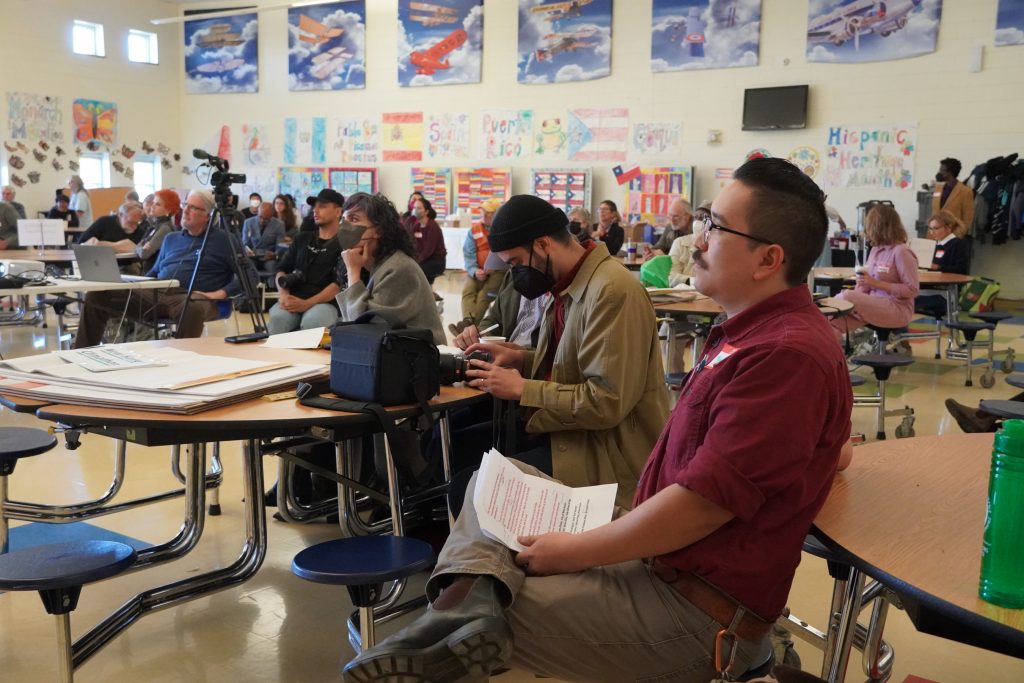
The event wrapped up with participants from each workshop sharing some of the key points and solutions that came from their groups. Now, the focus is to share the resources from the event more widely online and start to form partnerships with the involved organizations to implement some of the solutions identified.
Special thanks to Steve Hamm, Aicha Woods, Lee Cruz, Mauro Diaz- Hernandez, Mercy Quaye, and Raheem Nelson for their roles in organizing this event. Supporting coverage of New Haven Climathon can be found here, courtesy of the Yale Daily News. The event was also covered by The Art Council of Greater New Haven and The New Haven Independent.
Sponsors of the event include: Arts Council of Greater New Haven, Community Foundation of Greater New Haven, Connecticut Sea Grant, Greater New Haven Green Fund, The Jiniam Foundation, and Sustainable CT.
Partners of the event include: Artspace; City of New Haven; Connecticut Department of Energy and Environmental Protection; Connecticut Institute for Resilience and Climate Adaptation (CIRCA); CitySeed; Save the Sound; CPEN – Community Placemaking Engagement Network; Downtown Evening Soup Kitchen; Gather New Haven; Integrated Refugee & Immigrant Services (IRIS); International Festival of Arts & Ideas; Junta for Progressive Action; Long Wharf Theatre; Neighborhood Housing Services of Greater New Haven, New Haven Climate Movement; National Oceanic and Atmospheric Administration; Quinnipiac University; URI; Yale School of the Environment; and Yale School of Public Health Center on Climate Change and Health.
